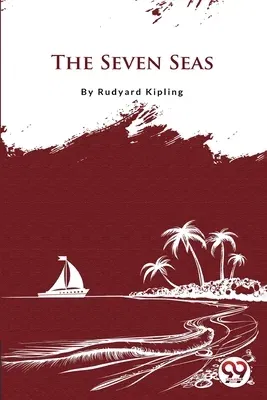'The Seven Seas' is a book of poetry by Rudyard Kipling printed in 1896.
The Seven Seas was one of Rudyard Kipling's accomplishments. Its poems
effect the promise of the title page promoting a stormlashed,
oilskin-clad sailor at the wheel. This was Kipling's first poetry
collection since the smash hit 'Barrack Room Ballads' of 1892. It is
splitted into two sections: 20 of the 34 poems in the first half are
directly concerned with ships, sailors, and all but five of the others
deal with the related topics of travel, communications technology and
connections across space and/or time while further 'Barrack Room
Ballads' conclude with the homeward-bound soldier of 'For to admire'
considering an amazingly calm 'Injian Ocean'. The main theme of The
Seven Seas is the global range of the British Empire, its regions
divided by thousands of miles of salt water yet consolidated by the
ships of the Royal Navy, the merchant fleet and the liners carrying
their travellers between the continents. Numbers 1-25 are separate
poems, all linked by the ideas of the sea and more or less specifically
the British Empire. 'A Song of the English' is the longest poem, at
around 20 pages. The Seven Seas celebrates British imperialism. It is a
sharp, disenchanted series of poems centred on Britain's role in
colonialism and Empire building with reverberations and powerful
imagery.


